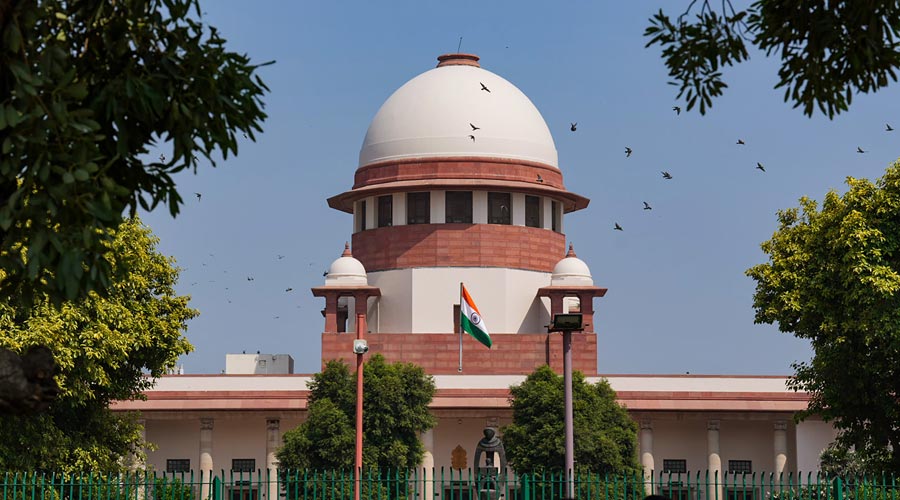The Supreme Court on Wednesday removed its recent remarks describing the Sikkimese Nepalis as of “foreign origin”, on a day Sikkim saw a 12-hour total shutdown over the issue.
Hearing pleas by the Union government, the state of Sikkim and third parties seeking modifications in its observations, a two-judge bench of Justices M.R. Shah and B.V. Nagarathna said: “We think it just and proper to correct certain words in paras 10A and 68.8 of my judgment by making the following corrections: In paragraph 10A, the second sentence stands deleted. In paragraph 68.8, ‘from the current financial year i.e., 1st April, 2022 onwards 2022’ stands deleted.”
In its January 13 verdict extending income tax exemption to old settlers of Indian origin, the court had observed: “… There was no difference made out between the original inhabitants of Sikkim, namely, the Bhutia-Lepchas and the persons of foreign origin settled in Sikkim like the Nepalis or persons of Indian origin who had settled down in Sikkim generations back.”
The court in another instance had remarked: “...Migrants from other Countries/ erstwhile Kingdoms such as Nepalese migrants, who had migrated to and settled in Sikkim....”
The emotive issue of being labelled as being of foreign origin apart, the avalanche of protests taking place throughout Sikkim have also been against the Apex Court directive to amend the definition of the term “Sikkimese” by including the old settlers of Indian origin in it to enable them to get tax exemption on a par with Sikkimese Nepalis, Bhutias and Lepchas.
Since Article 371F of the Constitution, which is a special provision provided for Sikkim at the time of its merger with India in 1975, protects old rules and laws of the state, protesters contended redefining the term “Sikkimese” dilutes the state’s special status.
They also contended that only those old settlers who have been living in Sikkim since 15 years before the Sikkim Subjects Regulation, 1961, read with Sikkim Subjects Rules, 1961, came into force in the then kingdom should be considered as old settlers, and not all those who have been living in the state since before its merger with India.
“We are not against the old settlers being granted IT exemption, but they should not be considered Sikkimese on the basis of the definition of the Income Tax Act, 1961. The government must pass a resolution to this effect in tomorrow’s special session of the Assembly,” said Keshav Sapkota, the general secretary of the Joint Action Committee (JAC), while welcoming the removal of the foreigner tag on Sikkimese Nepalis.
The modification of the apex court’s observations has also been widely welcomed by others in the state where a 12-hour JAC-sponsored Sikkim bandh on the issue passed off peacefully on Wednesday with normal life coming to a standstill as government and private offices, and business establishments remained shut and vehicular movements came to a complete stall.
Hailing the modifications, Sikkim chief minister P.S. Golay (Tamang) said: “This is to thank and express our gratitude to the Hon’ble Supreme Court of India for their understanding of the sentiments of the people of Sikkim and for resolving the matter instantly. Sikkim has immense faith in the Indian Judiciary, and it remains grateful.”
The JAC, which was formed in the wake of the Supreme Court judgment that led to public outrage, also thanked all the people of the state for ensuring the success of the bandh.
Apart from a few instances where JAC volunteers approached shops operating on the sly from the backdoors and an office of a private in Gangtok to close, there were no untoward incidents reported from any part of the state.










